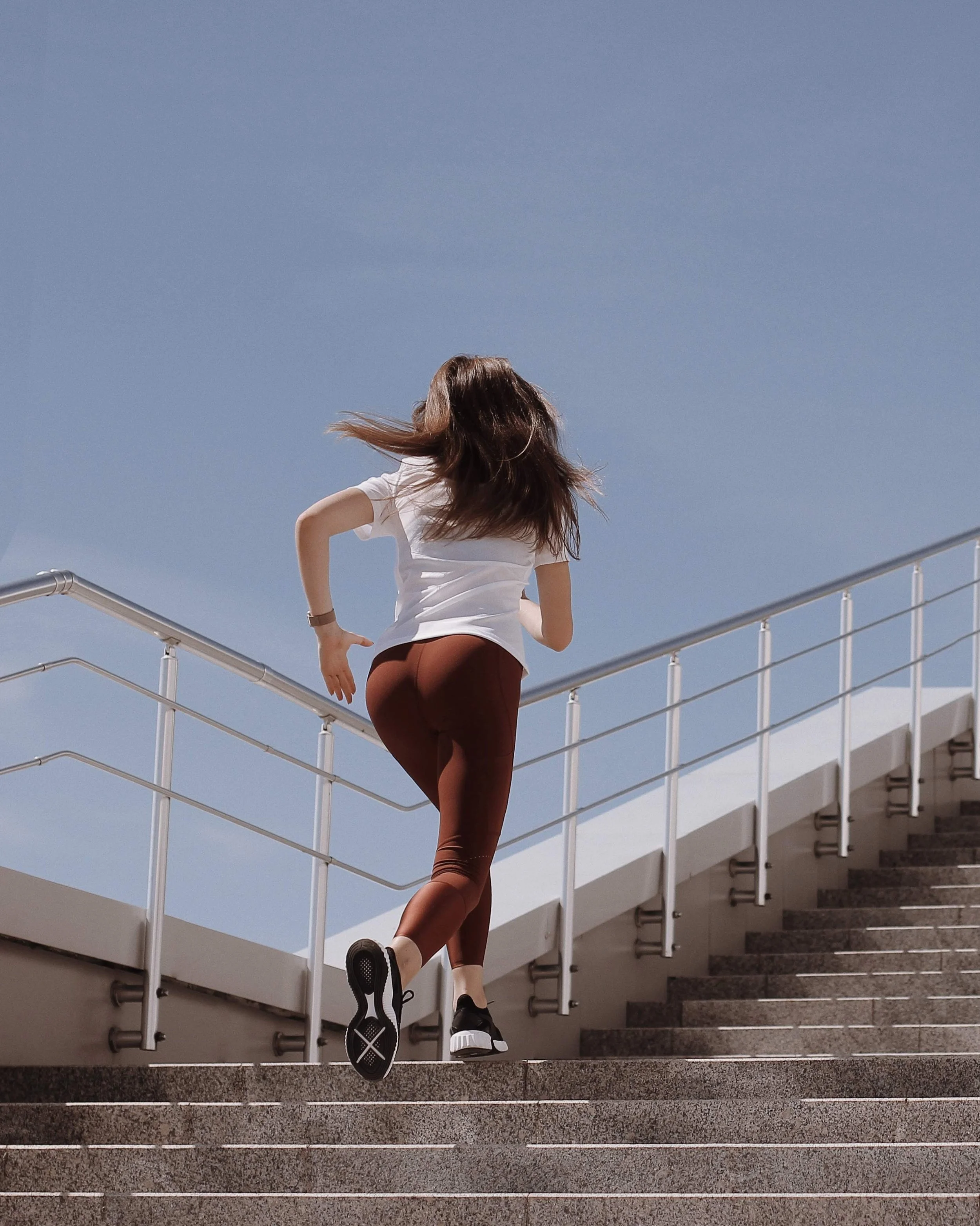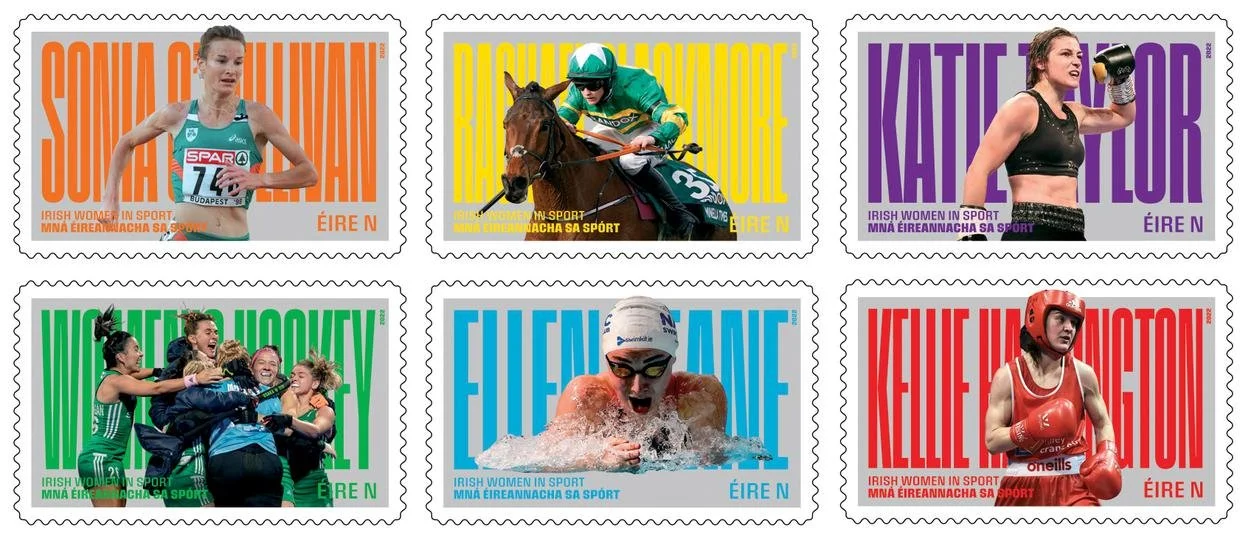Finding Freedom Through Sport
5 minute read
In honour of International Women’s Day on Tuesday, An Post has launched a six-stamp booklet celebrating some of Ireland’s leading sportswomen, from Sonia O’Sullivan and Katie Taylor to Ellen Keane and Rachael Blackmore. It might have slipped my notice had I not just read an article in The Guardian about how displaced Iraqi girls in refugee camps are being given the opportunity to run, hike and kickbox thanks to a charity-funded programme called Free To Run. The initiative is transforming these young girls’ lives through sport, with one of the participant’s explaining to Time magazine when interviewed last year: “I feel free when I run, far from prisons and war. I feel like there are no limits and nothing to stop me.”
It was Nelson Mandela who said, “Sport has the power to change the world. It has the power to inspire. It has the power to unite people in a way that little else does. It speaks to youth in a language they understand. Sport can create hope where once there was only despair.” In the context of women’s lives, his words have an even stronger resonance, one that is ringing true for each of the young Iraqi refugees participating in the Free To Run programme. Many of these teenagers had lived under Isis before fleeing their hometowns and some had lost family members in the war. None had been allowed to participate in sport after puberty because in that patriarchal (read misogynistic) society, it was considered “inappropriate”. In some cases, these girls weren’t allowed to leave their homes. But hiking, running and kickboxing have given them greater confidence in their day-to-day lives, fostered more meaningful relationships between the teens, and empowered them to see a future beyond the refugee camp walls.
This last point is reinforced by a 2013 study, which found that participation in sports can affect a woman’s future career prospects.
The study by international firm Ernst & Young cited women such as Hillary Clinton (she played college basketball) and Christine Lagarde (she was a member of the French national synchronised swimming team) as examples of how sport can help develop strong, ambitious and independent-minded women just as it is doing in these Iraqi refugee camps today.
I’ve always considered my late aunt to be a wonderful example of the transformative power of sport. She contracted polio at the age of four and was a wheelchair user for the rest of her life. She took part in four Paralympic Games – in Israel, Germany, Canada and The Netherlands – winning a total of six medals, including a gold, for swimming and table tennis. This was in the late sixties and early seventies, when little was expected of individuals with disabilities, not simply in sport, but in life. It could be argued that little more was expected of women. Against all of her family and friends’ expectations, she competed and won, then went on to marry and have two children. She worked, she painted in her spare time, and she was one of the happiest, most fulfilled women I’ve ever known. I’ve no doubt that her achievements in sport influenced what she believed she was capable of in every other aspect of her life.
The series of stamps from An Post
I sadly opted out of PE in fifth year in school for predictable reasons – self consciousness, fear of failure, the lack of a sufficiently competitive spirit (none of which, on reflection, should actually prevent any girl or woman from finding a sport that suits them) – and I didn’t fully understand the value of sport, to women in particular, until I was in my 40s when I started running, hiking and sea swimming. These activities have buoyed me in difficult times, rebuilding my confidence, recharging my emotional batteries and redirecting my inner critic when nothing else could. Gymnast Olga Korbut explained it perfectly when she said: “This ability to conquer oneself is no doubt the most precious of all things sport bestows.” I wish now that I’d had these resources through my teens, 20s and 30s; this ability to “conquer” myself.
For many women, sport has a lot less to do with fitness and far more to do with freedom – physical, geographical and emotional. That Park Run or spin class, pilates session or tennis match, represents an escape, an emancipation, from caring responsibilities, household duties and life admin; from everything that so often falls on the shoulders and laps of women in midlife. But it’s also an escape from the traditional stereotype of women as vulnerable and small, meek and mild-mannered. Of course a society that oppresses women would consider sport inappropriate. To play sport, you have to showcase traditionally masculine characteristics: strength, resolve, speed, ingenuity, competitiveness, and a killer instinct at professional level. As the young refugee in Iraq referenced above, sport removes the limitations that have historically hindered women, from dress codes to geographical constraints. We don’t always appear pretty or feminine when we play sports either. We sweat and pant, we sprint, stretch, kick and sometimes shout. We take up space and we make noise, just as men have always done.
Sport also provides an opportunity to reconnect with your mind, body and soul all at once, and there are few pursuits that touch this trilogy in tandem.
While our first-world lives bear no comparison to those of war ravaged teenagers, we all have our own mental ‘prisons’ and emotional ‘wars’ that we need to escape from sometimes.
Professional, amateur, faddish, first timer – it doesn’t matter – sport, fitness, outdoor pursuits, whatever you prefer to call it, can lift spirits and shift perspectives quicker than a fortune cookie. Watching the Operation Transformation contestants crossing their 5km finish line last week on RTÉ was emotional. It meant as much to them as a boxing belt does to Katie Taylor. To them, the finish line of that run signalled the start of what another refugee described in The Guardian article as “a way to live my dreams”. She explained that kickboxing made her feel stronger and better able to protect herself. While she was referring to physical protection, sport gives us the means to guard our emotional and mental state too. It gives us greater control over those parts of ourselves that can be damaged more easily and more often than our actual physical selves. To paraphrase, sticks and stone break bones, but words and attitudes cut far deeper and wound for far longer.
This article and its sentiment may read as feeble in the light of Russia’s invasion of Ukraine. What a luxury to theorise about how sport may help trauma victims and the underrepresented, while watching from afar Ukrainian women sleeping in underground train stations and walking to border countries with babies in their arms and toddlers by their sides. But healing, when it happens, will come in all forms, and sport should be one of them. When I buy that booklet of stamps this International Women’s Day celebrating Irish women in sport, I’ll think of all the Ukrainian girls who’ll one day compete for their (hopefully independent) country despite suffering war, displacement, fear and loss.
Marie Kelly, March 2022
dear reader, tell us what you think in the comments below
join the conversation
share and comment below, we’d love to hear your thoughts…











